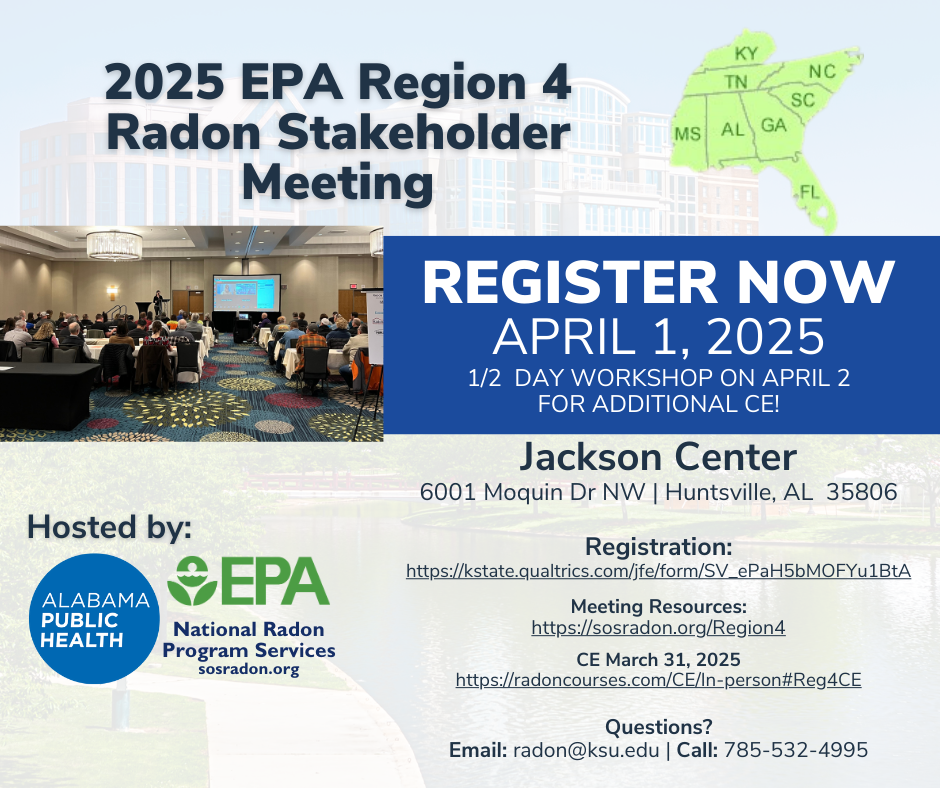Thanks for Joining Us in Huntsville, Alabama on April 1-2, 2025!

--------------EPA Region 4 Radon Stakeholders' Meeting Resources 2025--------------
Quiz (only valid for those who attended in person)
Presentations
Day 1
Keynote: Lung Cancer Screening - Dr. Michael Gieske
US EPA Update - Tommy Bowles
IEA Update - Diane Swecker
IEA Chapter Updates:
- North Carolina Chapter - Myca Bruno
- Tennessee Chapter - Phil McDonnell
- Kentucky Chapter - Kyle Hoylman
- Florida Chapter -
Alabama Geology and Radon - Brian Cook
Real Estate Panel - Brian Hanson
State Focused Reports
Devices Discussion - Brian Hanson
Getting into Multi-Family, Schools, and Large Buildings Work for Public Agencies - Brian Hanson
American Lung Association - Ashley Lyerly
NRSB - Carolyn Vick
NRPP - Amy Roedl
CRCPD Update - Kim Steves
Professional Use of Vocabulary in the Soil Gas Industry - Chad Robinson
Day 2
Reaching New Audiences and Engaging in New Communities Workshop - Angie Jordin
Getting Radon Work Done in Region 4 Workshop - Brian Hanson and Merritt Gantt


